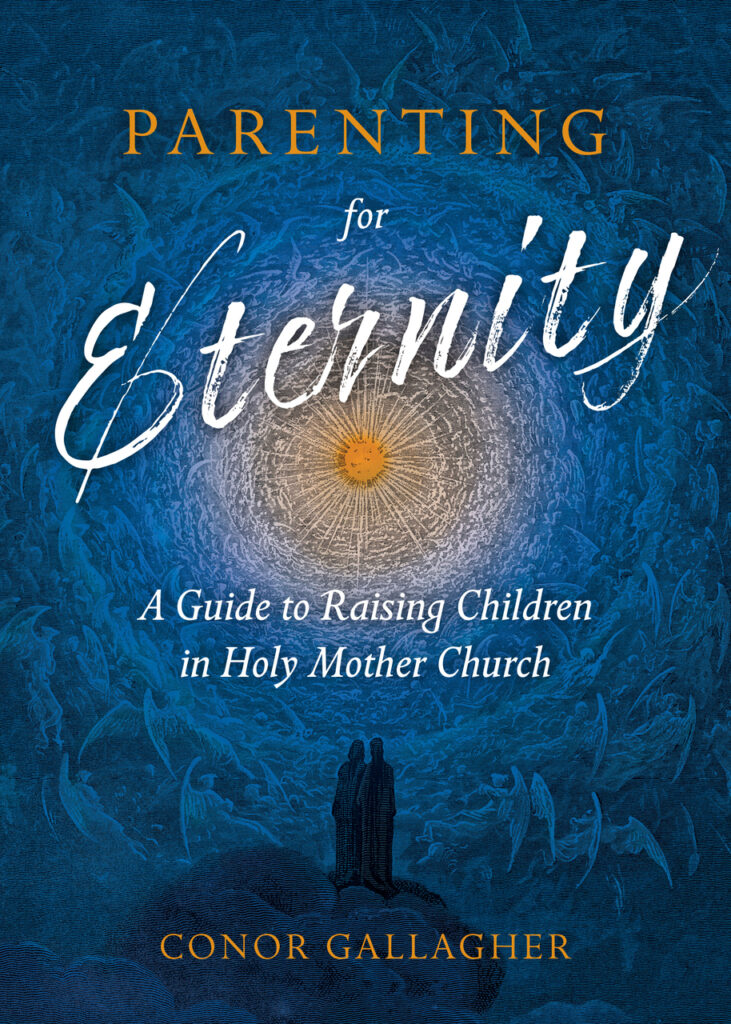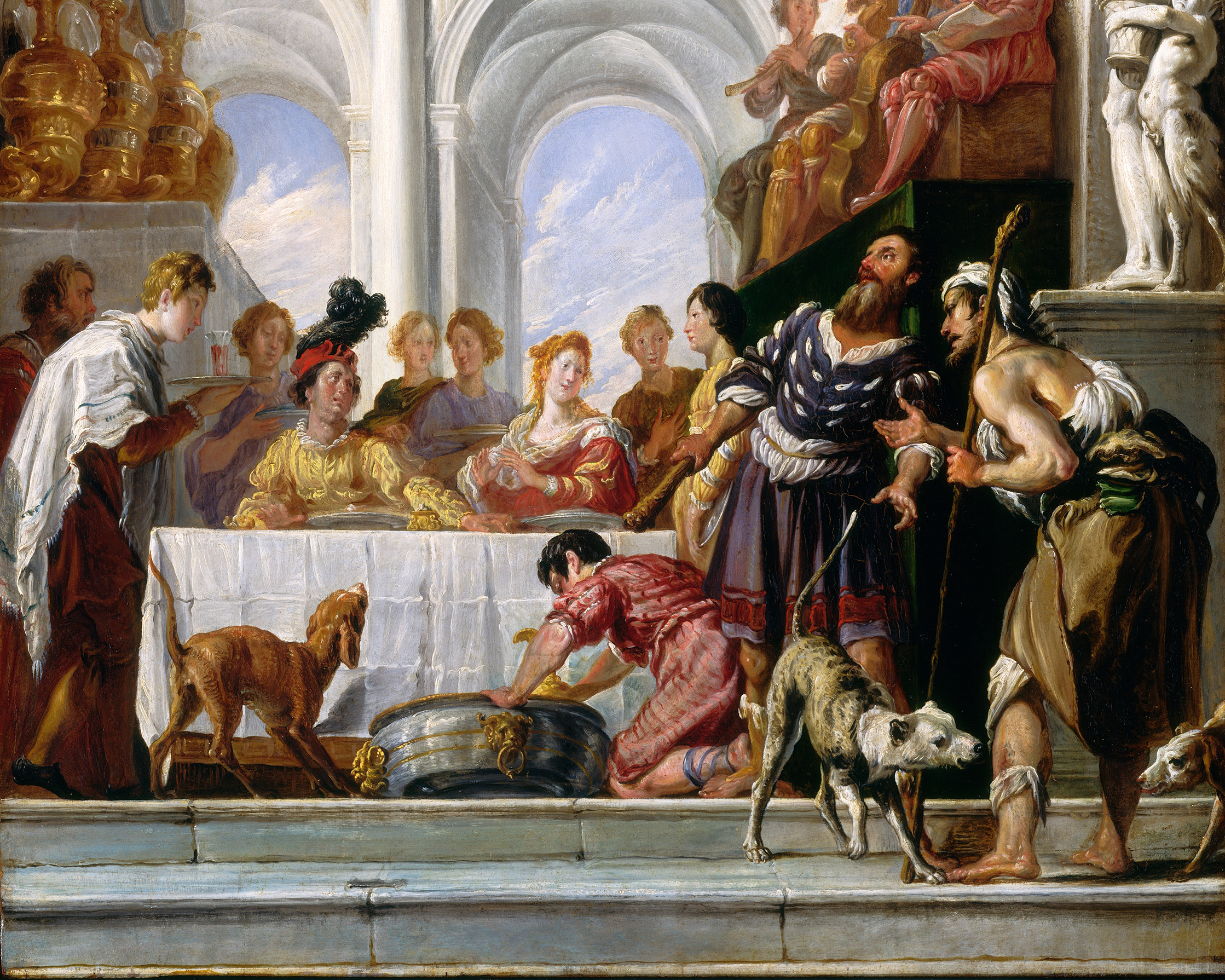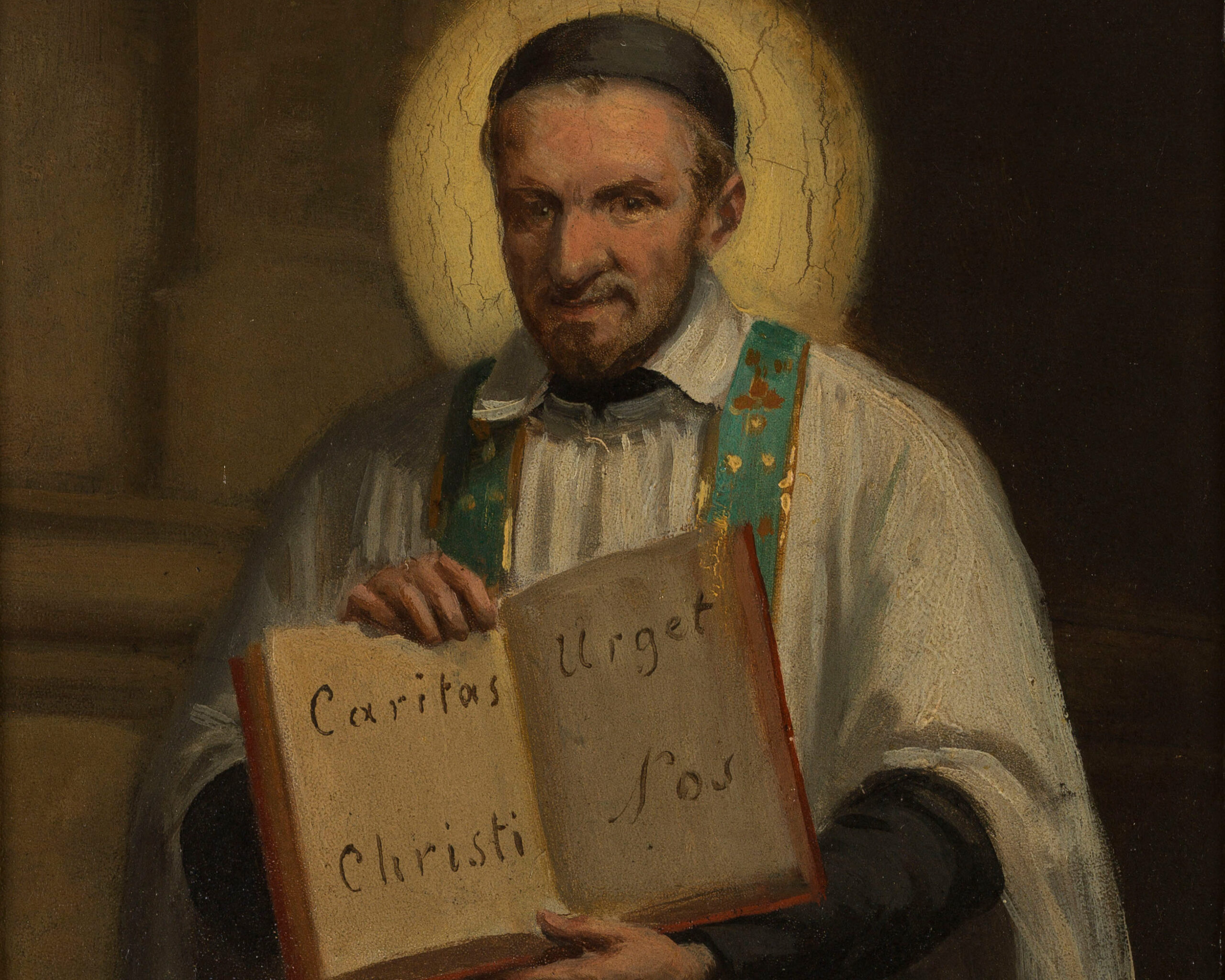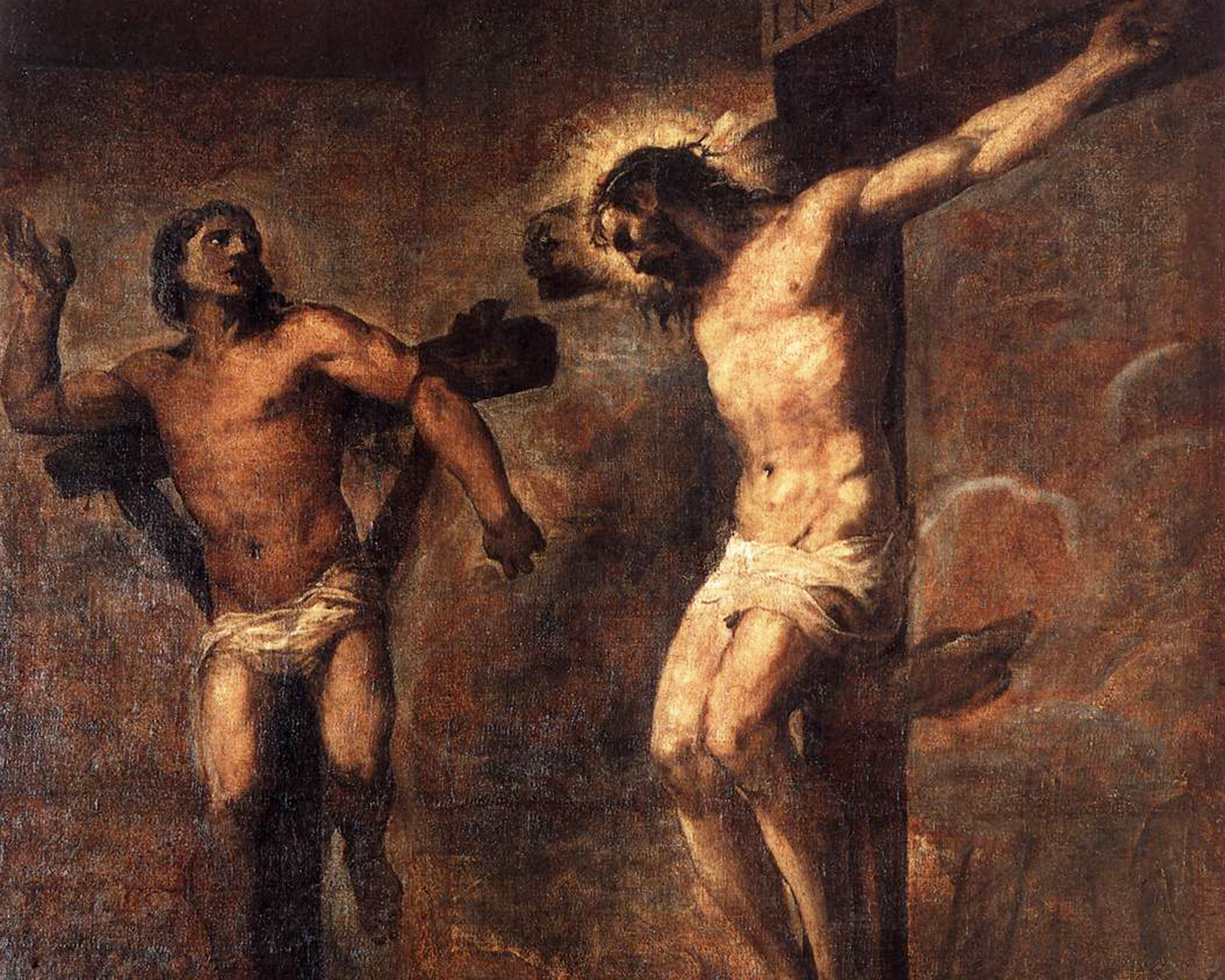Stop. Be still. Calm the mind for a moment; allow the striking, jarring, chilling words of the God-man to sink deeply into your soul: “And he that taketh not up his cross, and followeth me, is not worthy of me” (Mt 10:38). “And calling the multitude together with his disciplines, he said to them: If any man will follow me, let him deny himself, and take up his cross, and follow me” (Mk 8:34).
As a Catholic, you have heard these lines countless times. If you are like most, however, they wash over you like beads of water, never soaking in. Perhaps the greatest paradox of our divinely given faith is the torture and death of the God-man on a wooden cross. And the paradox continues to His followers: we must, metaphorically, die on our own cross to be saved. We must follow Christ in the way of the cross. You, Loving Parent, must educate your little one in the school of Calvary. You must teach him to die little deaths, to never fear suffering, and to willingly and zealously pick up his cross and bear it with a heart bursting with love.
How counterintuitive this is for a loving parent! You spend your life helping your child avoid pain and suffering. You doctor the skinned knee; you brush and floss to avoid cavities; you strap a helmet on the little head to go along with the first bike.
But there is another form of suffering that you must teach your child to endure from the earliest ages. Look around at the modern man and woman: you will see that we live in the era of wimps. Men have become effeminate. The world will tempt your sons to become effeminate. Did you know that St. Paul addressed this very issue? “Know you not that the unjust shall not possess the kingdom of God? Do not err: neither fornicators, nor idolaters, nor adulterers, nor the effeminate, nor liers with mankind, nor thieves, nor covetous, nor drunkards, nor railers, nor extortioners, shall possess the kingdom of God” (1 Cor 6:9–10, emphasis added).
In a powerful book for men entitled The Terror of Demons: Reclaiming Traditional Catholic Masculinity, the author Kenney Hall says,
“The Greek word for ‘effeminacy’ in the New Testament is malakia (μαλακία)[1] which means ‘softness.’ St. Thomas defines effeminacy as a reluctance to suffer due to an attachment to pleasure. He explains that effeminacy is a vice opposed to perseverance. In essence, effeminacy is a vice that is opposed to the Cross, which is an unfortunate characteristic that might explain the multitude of soft men who reject life’s redemptive sufferings in pursuit of temporal pleasure.”[1]
Perhaps my large number of children has spared me from the ability to spoil them. Perhaps I am too lazy to do so. But whatever the reason, I am astounded at how my peers, especially fathers, go to extreme lengths to make life easy for their children. Whether they are spoon feeding a child who can feed himself, doing dishes for a child who can reach the sink, folding laundry for a middle schooler, or paying good money to repair something that the teenager can figure out how to repair on YouTube; the modern parent often seeks to remove crosses from his or her child’s path. On a natural level, there is a reason that children who grow up on a farm become more self-reliant, disciplined, and conservative adults—not expecting special treatment or government assistance to obtain their own success. Whether you live on a hundred acres or in a city apartment, you must force your child to do what he can do for himself.
Why do parents so often coddle their child? One possibility that you must reflect upon: they fear their child does not have sufficient respect for their authority and will thus revolt at the first sign of conflict. If you find yourself in this situation with, say, a teenager, you have perhaps failed for many years up to this point. Understandably, you cannot suddenly become a domineering force in the life of someone who has been allowed to walk over you. The task before you is difficult; it is, in fact, one of conversion. And if you conclude that you have failed in your duties up to this point, you should confess your sins of omission to a priest. “Bless me, Father, for I have sinned. I have been a doormat to my kid for over seventeen years, and now I must walk on eggshells to even influence him.” This, my Dear Parent, is a good confession. The sacramental grace you will receive from the priest will enable you to navigate the rough waters ahead.
But back to the cross. As a parent, you must find little ways to make your child tough—on both the natural and supernatural level. Regarding the latter, be a constant reminder to your child that suffering is redemptive. Be creative: relate the physical suffering to spiritual development. When your son is complaining of doing yard work, tell him,
“You must pull weeds from the garden just as you must pull up every venial sin in your life. See how fast that weed has grown and how it is covering the healthy plants? Selfishness and laziness and greed and lust, they all grow quickly and spread throughout every area of your life. Now go, pull those weeds like you mean it, and consider your sins while you do so.”
Or when your middle schooler daughter complains about doing the dishes, tell her what St. Teresa of Calcutta said: “Wash the dish not because it is dirty nor because you are told to wash it, but because you love the person who will use it next.” Or when your high schooler gripes about doing the laundry, have the wherewithal to say, “Clothing the naked is one of the seven corporal works of mercy. And Jesus said, ‘For I was hungry, and you gave me to eat; I was thirsty, and you gave me to drink; I was a stranger, and you took me in: Naked, and you covered me: sick, and you visited me: I was in prison, and you came to me’ (Mt 25:35–36). In other words, child, don’t waste your chores! Do them for Jesus and you will have your reward in heaven.”
Yes, as a parent, you must get creative. But the law has an old adage: you cannot give what you do not have. Do you, Dear Parent, keenly understand that if you feed and clothe your child and care for him when he is sick—with the love of Christ—that you are feeding Him, clothing Him, and doctoring Him? Do you see these small burdens in your life as not only carrying your own cross but helping Jesus carry His, as did Simon of Cyrene? Or do you struggle through the daily chores, rushing the kids off to bed so that you can cast off all those little crosses, toss Jesus to the side, and return to your Netflix?
A practical parent might say, “If you have to do the chore anyway, you might as well get some grace by offering it up!” A saintly parent, however, does not do so out of utility to their own spiritual investment portfolio. No! A saint carries the little crosses out of passionate, zealous charity for God and neighbor. At a certain point, usefulness to yourself vanishes, as a mother who forgets herself and runs to the fallen child out of instinctual love. There is no calculation of how taking on a little suffering will benefit her. She cares nothing about dirtying her dress when she kneels to the ground to help her child. She cares not if her hair gets disheveled. She moves out of love, not out of return on investment.
You must learn to suffer out of love: unabashed, brazen, barefaced love. You must first suffer for your spouse. And when you feel the prick of self-love,—the need for acknowledgement or accolade, credit or compliment—be ashamed. How did Christ at the column seek flattery while His flesh was ripped from His bones by the flagrum? How did the King of kings seek tribute as He was mocked with a crown of thorns driven into His head?
In one of TAN’s greatest books, ever-so aptly entitled The School of Jesus Crucified: The Lessons of Calvary in Daily Catholic Life (for as a Parent, you are the primary teachers of your child in the school of Calvary), we find a powerful meditation on Christ’s willingness to suffer humiliation. As you read the following, ask yourself why your ego is so easily wounded, how quickly you take offense, how unworthy you are to be called a student of Jesus Crucified:
“The enemies of Jesus Christ seem to take peculiar satisfaction in making Him a mock King, in ridiculing His sufferings, and in subjecting Him to every species of degradation and insult. They furiously tear off His garments, and clothe Him in a ragged purple mantel. This outrage is a source of exquisite suffering to Jesus, for the tearing off His garments re-opens all the wounds which have been so lately inflicted by His flagellation, so that fresh blood flows from the lacerated limbs. Oh, how much have the pleasures of our sinful flesh, the delicacy of our bodies, the luxury and vanity of our clothing, cost our sweet Jesus!”
They place in His hand a reed as a scepter, to constitute Him a mock King, a King of a theater! Jesus refuses it not, but receives and holds it in His hand, rejoicing by so great a dishonor to merit for you graces of strength and perseverance in virtue, and to purchase for you a heavenly kingdom. In this state Jesus appears to the insolent soldiery a proper subject for mockery, and they proceed to ridicule him in a manner worthy of their cruelty. They all march before Him, saluting Him in the most derisive terms King of the Jews. They deride Him as a wretched imposter, adding shameful insults and reproaches to the most humiliating expressions of scorn and ridicule. They spit in His face, give Him blows, and, taking the reed out of His hand, strike the crown of thorns with it so violently as to enlarge every wound, and cause Him the most exquisite pain. They vie with each other in deriding and insulting Him, and in rendering His sufferings yet more cruel and ignominious. Oh, how ingenious is human cruelty in torturing Jesus! But in the meantime, His most holy Soul, though overwhelmed with the weight of so much ignominy and suffering, rejoices in offering to His Eternal Father the sacrifice of humiliations so profound, in reparation of the outrages offered to His Majesty by our sins. Bow down in adoration before this Divine King, return Him thanks for His infinite charity, and promise that you will love Him alone for the remainder of your life.
Amid his bitterest sufferings and most excessive humiliations, Jesus never once opens His mouth to complain. A frightful crown of thorns pierces His head on every side, and causes Him the acutest pain, yet he makes not the slightest complaint of the cruelty of His enemies. What do you say to this example of divine and superhuman patience, O you who are ever seeking after worldly pleasures and sensual gratifications, and who cannot endure even the slight thorn of some small inconvenience or trifling pain? You ought indeed to feel ashamed of living in luxury, when you behold your king, your Creator, and your God crowned with sorrow and ignominy. Do you calculate upon entering Heaven crowned with the roses of pleasure instead of thorns of mortification, suffering, and penance? Deceptive hope!
Jesus Christ beholds Himself abandoned by all—in the power of His cruel enemies, outraged, defied with spittle, buffeted, and smitten, yet He maintains peace of soul, and calmness of demeanor, and makes not the slightest gesture of anger or impatience.
“And you, wretched worm of the earth, unworthy sinner—you have not yet learned to submit in peace and silence to an insult, injury, or wrong done you by your neighbors! Is it possible that the sight of a God thus loaded with ignominy and suffering, and yet so patient and so humble, should not be sufficient to teach you patience and humility? If you do not imitate the example of Jesus Christ, you will not partake of his glory.” [2]
This, Good Parent, is the School of Jesus Crucified. And if you have not learned the way, you cannot teach the way.
Ask yourself, was Jesus making an investment into His own glory? Or was He not suffering the unimaginable for your sake, your child’s sake, as an oblation, a final blood offering, to His Father? Unabashed, brazen, barefaced love. That, my Dear Reader, is the love of the cross. Paradise has no mansions for the utilitarian, for the calculating, for the Cyrenian who has a price.
Husband: does your love of your wife have a price? How much appreciation must she give you for you to love her as Christ loves His Church? What is your minimum price? Must she stroke your ego at least once a month for you to die small deaths for her? Once a week? A day? From one man to another, I hope such a question torments you as it does me.
And wife: does your love for your husband have a price? Just exactly how much weight must he carry around the house to warrant your respect? What is your docility worth? Is doing 17 percent of the household work an equitable consideration for your feminine devotion, or do you draw the line at 32 percent? I pray you will contemplate unconditional love the next time you are tempted to negotiate through the sacrament of Matrimony.
Yes, you cannot give what you do not have. You cannot raise your child to love his or her cross until you love your own. Your son will learn the Way of the Cross by watching his dad joyfully maneuver through mom’s mood or hyper-criticism. Your daughter will learn the Way of the Cross by watching mom affectionately walk dad back from sinful bursts of anger or patiently pushing him out of his slothful slumber. You, Father and Mother, are the walking, breathing, bleeding Stations of the Cross. And if you fail in this moral duty, your soul is in the most severe jeopardy of eternal damnation. Why? Because the God-man said, “And he that taketh not up his cross, and followeth me, is not worthy of me” (Mt 10:38).
Thus, if you have failed in your duty to instruct your little one in the Way of the Cross, you have most assuredly and woefully led your child astray. And it is better that a millstone be tied around your neck and that you be cast into the depths of the sea (Mt 18:16; Mk 9:41; Lk 17:2[P2] ). If three Gospels quoting the same divine warning is not enough, I am not sure what is.
The earthly reward, however, can be sweet if God so wills it. As your children grow, you will learn they respect you not for the pleasures you provide, but for the suffering you willingly endured for them and with them—and most assuredly—completely apart from them. Those little eyes see and have sympathy for the involuntary sufferings you endure. But they watch, internalize, memorize, and imitate the voluntary sufferings you endure. Little minds know that dad and mom did not have to make that sacrifice. They know dad does not have to wake up early to say his prayers. They know mom does not have to turn the cell phone off to read Scripture for five minutes in quiet. They know. They know the family does not have to load up screaming kids and go to confession frequently. They know. And they will love you for it. They will want to be like you. And one day, when you “catch” your young adult going to Eucharistic Adoration, you will feel the tenfold return of your many sacrifices—yes, even in this life if God so wills it.
[1] Kennedy Hall, Terror of Demons: Reclaiming Traditional Catholic Masculinity (TAN Books, 2021), p. 33.
[2] Ignatius of the Side of Jesus, The School of Jesus Crucified: The Lessons of Calvary in Daily Catholic Life (TAN Books, 2002), pp. 122–24, emphasis added.
This article is taken from a chapter in Parenting for Eternity by Conor Gallagher which is available from TAN Books.









